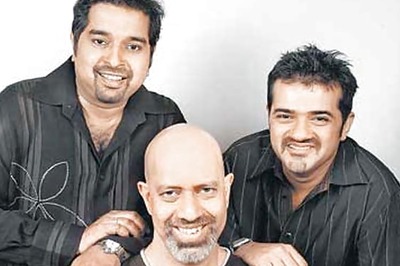
views
New Delhi: Aviation regulator DGCA will soon ask its American and European counterparts to bar an Oslo workshop from providing maintenance to a critical component in the landing gear of Boeing 737s that has led some flights to undertake emergency landings in India.
Apart from the two regulators FAA and EASA, the Directorate General of Civil Aviation (DGCA) would also ask Boeing to issue a global advisory pertaining to ST Aerospace's workshop in Oslo, Norway, a senior DGCA official said on Friday.
The decision comes after the DGCA found problems in the 'trunnion pin', which is part of landing gear of an aircraft, during two separate incidents involving Jet Airways planes.
On both occasions, the watchdog detected "chicken wire mesh like cracks" in the trunnion pins of two Boeing 737 planes. The latest incident happened on March 3 at the Mumbai airport while the first one took place on April 13 at Khajuraho.
In both the cases, the planes had to make emergency landings due to problems with these pins, which take the entire load of the aircraft at the time of landing.
Prior to these incidents, the pins were sent for servicing to the Oslo facility, the official said.
DGCA would soon be writing to FAA and EASA requesting them to withdraw the approval given to the Oslo workshop, he said, adding that the regulator would also ask Boeing to issue a worldwide advisory to airlines using 737s to check trunnion pins in case they have been serviced at the Oslo workshop.
This would be the first time that such a communication pertaining to an aircraft component is going to be sent.
DGCA was also actively involved in global investigations into the lithium battery leak that had grounded the Dreamliner aircraft fleet the world over, including in India.
According to the official, the cracks could have happened on account of "uncontrolled" heating of the pins at the time of the overhaul.
ST Aerospace carries out maintenance works for aircraft parts and its Oslo facility are approved by the US Federal Aviation Administration (FAA) and European Aviation Safety Agency (EASA).
The official said Jet Airways had informed DGCA the pins, which were damaged during two incidents, were sent for servicing at the Oslo facility.
In India, three carriers - Jet Airways, SpiceJet and Air India Express - operate Boeing 737s.
After detecting the continued problem, DGCA has already advised the carriers about the ST Aerospace's Oslo workshop.
While Air India Express has said it has not sent the pins to this particular facility, SpiceJet has said such pins were sent to ST Aerospace facility in Singapore.




















Comments
0 comment